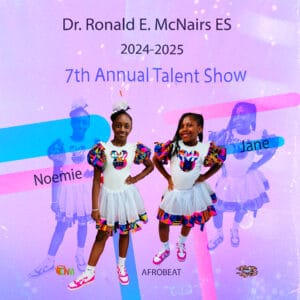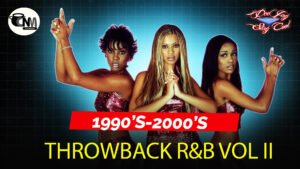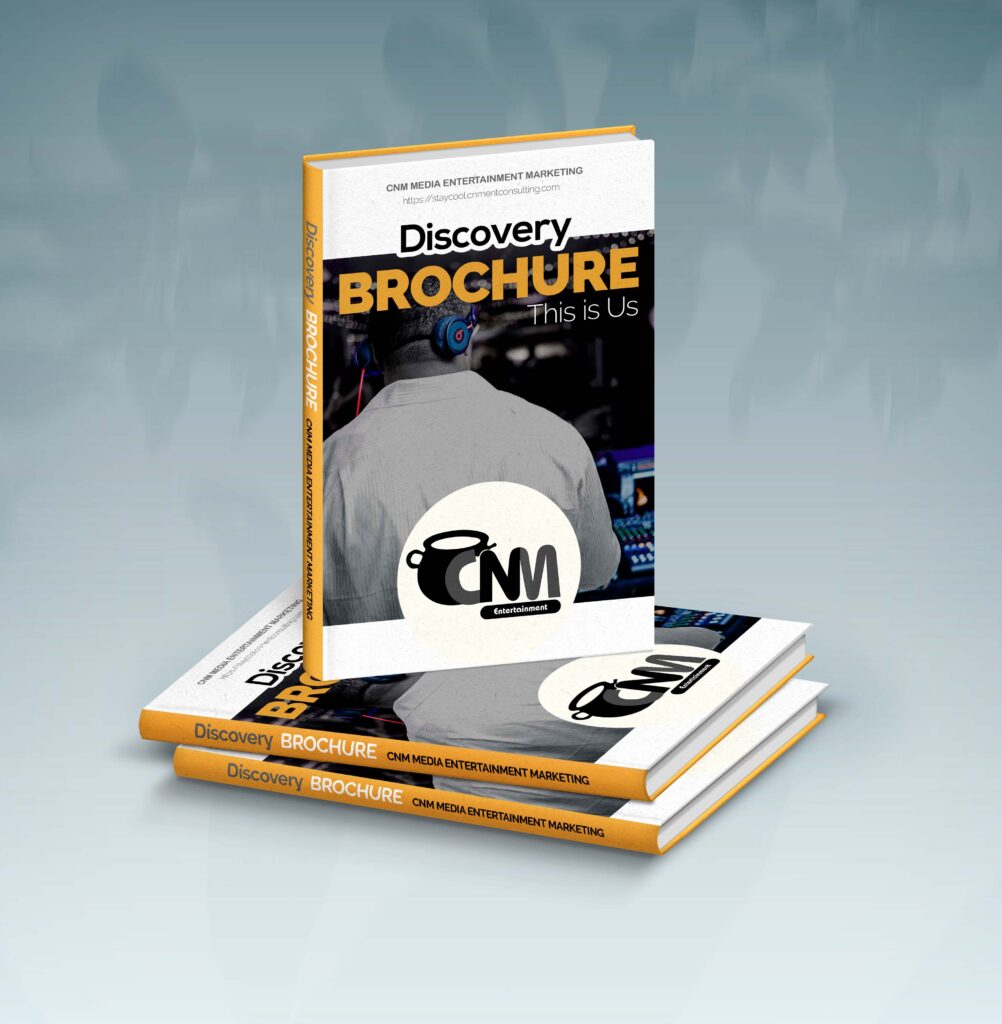The Power of AI in Music Production:
Exploring Generative Music AI and its Creative Possibilities
Generative music AI, a truly unique and innovative technology, has revolutionized the music creation and consumption landscape. Unlike traditional music production, which heavily relies on human composers and musicians, generative music AI operates independently, utilizing sophisticated algorithms to craft melodies, harmonies, and rhythms. Its ability to create evolving music and its capacity to analyze and understand patterns in existing music are just a few of its standout features.
Generative music AI involves training AI models on vast amounts of existing music data. This data can include various genres, styles, and artists, providing diverse musical inspiration. The AI models learn music’s patterns, structures, and characteristics through machine learning techniques such as deep learning and neural networks.
Once the AI models are trained, they can generate original music compositions. These compositions can be tailored to specific requirements, such as genre, mood, or tempo. The AI algorithms can analyze the desired musical parameters and create melodies, chord progressions, and rhythms that align with those specifications.
One of the significant advantages of generative music AI is its ability to create continuously evolving music. Traditional music compositions are static and unchanging once they are made. However, generative music AI can generate evolving music, creating an immersive and dynamic listening experience.
Generative music AI is a standalone tool and a collaborative partner for human musicians and composers. It can propose harmonies or melodies that align with the artist’s vision, enhancing the creative process. This unique collaboration between human creativity and AI innovation can lead to the creation of groundbreaking musical works, reassuring the role of human artistry in the face of technological advancements.
Generative music AI is about more than just the creative process. It’s about you, the listener. With the vast amount of music available today, discovering new music can be overwhelming. But with generative music AI, your preferences, listening habits, and musical tastes are analyzed to curate personalized playlists and recommendations. This customized approach to music discovery enhances your experience, introducing you to new artists and genres you may have yet to discover, making you feel valued and catered to.
In conclusion, generative music AI is a powerful tool transforming the music industry. It allows the creation of unique and ever-evolving music compositions, enhances human musicians’ creative process, and provides listeners with personalized music recommendations. As technology advances and AI algorithms continue to improve, the possibilities for generative music AI are genuinely endless, sparking excitement and inspiration for the future of music production and consumption.
One of the critical aspects of generative music AI is its ability to analyze and understand patterns in existing music. Machine learning algorithms are trained on vast amounts of music data, allowing them to identify common motifs, chord progressions, and melodic patterns. This analysis goes beyond recognizing individual notes or chords; it delves into the underlying structure and relationships between musical elements.
Once the algorithms have learned these patterns, they can generate new musical compositions based on this knowledge. This is where the true innovation of generative music AI comes into play. By combining the learned patterns with input from the user, such as desired style or genre, the algorithms can create music that is both familiar and unique.
The possibilities offered by generative music AI are genuinely endless. Musicians and music producers can use these algorithms to generate new ideas, explore different musical styles, and even collaborate with AI in the creative process. For example, a composer can input a few notes or a basic melody, and the AI can then generate a fully fleshed-out composition based on that input. This can serve as a starting point for further development or a source of inspiration for new musical ideas. The versatility of generative music AI extends beyond music creation, as it can also be used in music education and exploration, as well as in live performances and improvisation.
Generative music AI holds great potential in music education and exploration. Students can delve into the patterns and structures identified by the algorithms, gaining a deeper understanding of music theory and composition. They can experiment with different inputs and observe how the AI responds, aiding in developing their unique musical style.
Additionally, generative music AI can be used in live performances and improvisation. Musicians can interact with the AI in real-time, using it as a virtual bandmate or collaborator. The AI can respond to the musician’s input, creating harmonies, melodies, and rhythms that complement and enhance the performance.
In conclusion, generative music AI is a powerful tool that combines the analytical capabilities of machine learning with the creativity of human musicians. It offers endless possibilities for creating, exploring, and understanding music. But remember that the human touch and artistry make music exceptional. Whether used as a source of inspiration, a collaborative partner, or an educational tool, generative music AI can revolutionize how we create and experience music. It’s a testament to the resilience and adaptability of human artistry in the face of technological advancements, reassuring you and making you feel secure and confident.
1. AI-generated melodies: One of the most exciting applications of AI in music production is the ability to generate melodies. AI algorithms can analyze existing music data and create new melodies based on patterns and structures found in the data. This can be an excellent tool for overcoming creative blocks and finding fresh ideas for your compositions. You can use AI-generated melodies as a starting point and then modify and adapt them to fit your style and vision.
2. Automated arrangement: Arranging a song can be a time-consuming process that requires careful consideration of the different sections and elements of the track. AI can assist in this process by automatically arranging the various parts of a song based on predefined rules and parameters. This can save you time and effort, allowing you to focus on other aspects of your production.
3. Intelligent mixing and mastering: Mixing and mastering are crucial steps in the music production process that can significantly impact the final sound of your tracks. AI-powered tools can analyze the individual elements of a mix and make intelligent decisions on levels, panning, EQ, and other parameters to achieve a balanced and professional sound. These tools can also help with mastering by automatically applying compression, limiting, and other processing techniques to enhance the overall quality of your tracks.
4. Real-time performance and improvisation: AI can enhance live performances and improvisation. AI systems can use machine learning algorithms to analyze and respond to a musician’s input in real-time, generating complementary sounds and textures. This can create a dynamic and interactive performance experience, blurring the line between human and machine creativity.
5. Music recommendation and curation: AI algorithms can analyze vast amounts of music data, including genres, styles, and user preferences, to provide personalized music recommendations. This can be useful for discovering new artists and genres and creating curated playlists for different moods and occasions. AI can also assist in music discovery by automatically categorizing and tagging songs based on their sonic characteristics and emotional qualities.
Incorporating AI into your music production workflow can revolutionize how you create and experience music. By leveraging the power of AI, you can unlock new levels of creativity, efficiency, and innovation in your music production process.
1. AI-assisted Composition
AI can assist you in composing by generating melodic and harmonic ideas based on your input. You can provide the AI algorithm with a melody or chord progression, and it can create variations or complementary parts. This can help you overcome creative blocks and explore new musical ideas you may not have thought otherwise.
I imagine you have a basic melody in mind for a new song, but I would appreciate some help with a suitable chord progression. By feeding the melody into an AI composition tool, you can receive suggestions for chord progressions that harmonize well with the melody. The AI algorithm analyzes the notes and intervals of the song and generates a list of potential chord progressions that complement it. This saves you time and effort in experimenting with different chord combinations manually.
Additionally, AI can help you create variations of your existing musical ideas. Let’s say you have a catchy chorus for a song, but you need to figure out how to develop it further. You can generate alternative melodies or harmonies that build upon the original idea by inputting the chorus into an AI composition tool. The AI algorithm considers the structure and motifs of the chorus and generates variations that maintain the overall feel and mood of the original section. This allows you to explore different musical directions and expand your initial composition creatively and efficiently.
Also, AI can help create complementary parts for your compositions. For example, if you have a melody but need a suitable bassline, the AI algorithm can generate bassline ideas that align with the melody’s rhythm and harmonies. This helps you construct a well-rounded composition with all the necessary musical elements. AI can also generate accompaniment patterns and counter-melodies or suggest instrument choices for specific parts of your composition, providing you with a comprehensive toolkit to enhance your musical ideas.
In summary, AI-assisted composition offers a range of benefits for musicians and songwriters. It can help overcome creative blocks, generate variations of existing ideas, and provide complementary parts for compositions. By leveraging the power of AI, musicians can unlock new possibilities and expand their musical horizons in exciting and innovative ways.
2. Automated Arrangement
Arranging a song can be time-consuming, but AI can help streamline the process. By analyzing the structure and elements of existing songs, AI algorithms can suggest different arrangement options for your compositions. This can save you valuable time and provide fresh perspectives on your music.
One key advantage of using AI for automated arrangement is the ability to analyze a vast amount of musical data. AI algorithms can explore thousands of songs across various genres and identify patterns in the arrangement. This allows the AI system to understand the common elements and structures that make a song engaging and memorable.
With this knowledge, AI algorithms can suggest different arrangement options for your compositions. For example, suppose you’re working on a pop song. In that case, the AI system might add a catchy chorus after the second verse, followed by a bridge section, to create a sense of anticipation before the final chorus. Alternatively, if you’re composing a classical piece, the AI system might suggest using a specific chord progression or orchestration technique to enhance the emotional impact of the music.
The AI system can also consider your preferences and style as a composer. By analyzing your previous compositions and musical choices, the AI algorithms can personalize the arrangement suggestions to align with your unique artistic vision. This ensures the AI system’s automated arrangement options are technically sound and resonate with your creative intentions.
In addition to saving time, AI-powered automated arrangements can provide fresh perspectives on your music. As a composer, it’s easy to get stuck in certain habits or patterns when arranging a song. AI algorithms, on the other hand, can think outside the box and suggest unconventional arrangement options that you might not have considered otherwise.
By incorporating AI into the song arrangement process, you can benefit from combining your creative intuition and the analytical power of AI algorithms. This collaboration between human creativity and AI technology has the potential to revolutionize the way music is arranged, opening up new possibilities and pushing the boundaries of musical expression.
3. Intelligent Sound Design
Sound design is crucial in music production, and AI can assist. AI algorithms can analyze and classify sounds, helping you find suitable samples, presets, or effects for your tracks. Additionally, AI can generate unique sounds and textures based on your specifications, allowing you to create original compositions.
One of the ways AI is revolutionizing sound design is through the use of machine learning algorithms. These algorithms can analyze vast libraries of audio samples and identify patterns and characteristics that humans may overlook. Training the AI on a wide range of sounds allows it to learn to understand the nuances and subtleties of different instruments, genres, and styles.
With this knowledge, AI can then assist in the sound selection process. For example, if you’re looking for a specific drum sound for your track, the AI can search through thousands of samples and present you with the best options based on your criteria. It can consider factors like your track’s genre, tempo, and mood, ensuring the chosen sound fits seamlessly into your composition.
AI can also help create unique sounds and textures. The AI can generate new sounds that have never been heard by inputting specific parameters and preferences, such as the desired tonality, timbre, and complexity. This opens up a world of possibilities for musicians and producers, allowing them to explore uncharted sonic territories and push the boundaries of their creativity.
Furthermore, AI can assist in developing sound effects and processing techniques. By analyzing existing audio effects and their parameters, the AI can learn to recreate and modify them, providing users with a wide range of customizable options. This allows for greater flexibility and experimentation in sound design, as musicians can easily tweak and fine-tune their effects to achieve the desired sonic outcome.
In conclusion, AI is revolutionizing sound design by leveraging its ability to analyze, classify, and generate sounds. By harnessing the power of machine learning algorithms, musicians and producers can benefit from intelligent sound selection, unique sound generation, and customizable effects. This enhances the creative process and opens new musical exploration and innovation avenues.
4. Real-time Performance and Improvisation
AI-powered tools can enhance your live performances by providing real-time accompaniment or improvisation. These tools can analyze your playing and generate complementary parts, harmonies, or rhythms on the fly. This can add an element of spontaneity and creativity to your performances, making each one unique.
Imagine you’re playing a solo on your guitar during a live concert. As you unleash your musical prowess, the AI-powered tool listens attentively, analyzing every note and nuance of your performance. It quickly understands the key, the chord progressions, and the style you’re playing in. This information starts generating complementary musical phrases that seamlessly blend with your playing.
The AI tool is not limited to a specific genre or style. Whether you’re playing a soulful blues riff, a complex jazz progression, or a fiery rock solo, the AI can adapt and respond accordingly. It can generate soulful backing chords, intricate jazz improvisations, or blistering guitar solos in real time as if a virtuoso musician were playing alongside you.
This real-time accompaniment and improvisation feature opens up a world of possibilities for musicians. It allows them to explore new musical territories, experiment with different styles, and push the boundaries of their creativity. With the AI tool as their musical partner, musicians can feel confident taking risks and exploring uncharted musical territories during live performances.
Furthermore, the AI-powered tool can also respond to the dynamics and emotions of your playing. If you suddenly increase the intensity and volume, the AI can detect this change and respond with a more energetic and powerful accompaniment. On the other hand, if you decide to dial it down and play a softer passage, the AI can adapt and provide a more delicate and subtle musical response. This dynamic interaction between the musician and the AI tool adds an extra layer of expressiveness and musicality to the performance.
In addition to enhancing live performances, AI-powered tools can also be used for improvisation. Musicians can engage in spontaneous jam sessions with the AI, exploring new melodies, harmonies, and rhythms they might not have thought of independently. The AI can suggest musical ideas, react to the musician’s improvisations, and create a collaborative musical experience.
Integrating AI-powered tools in live performances brings a new dimension to music-making. It allows musicians to tap into AI’s vast potential to enhance their creativity, explore new musical territories, and create memorable performances that captivate audiences. With real-time accompaniment and improvisation, musicians can unlock a world of possibilities and elevate their live performances.
Music recommendation and curation have become integral to our digital music experience. With the rise of streaming platforms and the availability of vast music libraries, navigating the sea of songs and artists can be overwhelming. This is where AI algorithms come into play, offering personalized recommendations and curated playlists tailored to our unique tastes and preferences.
The power of AI lies in its ability to analyze massive amounts of data. Regarding music, AI algorithms can explore the songs themselves and millions of users’ listening habits and preferences. By collecting and analyzing this data, AI can identify patterns and similarities between different songs and artists, allowing it to make accurate recommendations based on your personal preferences.
AI algorithms take into account various factors when making music recommendations. They consider the genres you listen to, the artists you follow, the songs you’ve liked or disliked, and even the time of day or your current mood. By understanding your musical preferences on a deep level, AI can suggest new artists, songs, or genres that you might enjoy but have yet to discover.
In addition to personalized recommendations, AI plays a crucial role in music curation. Streaming platforms and music services often create curated playlists based on themes, moods, or genres. AI algorithms carefully craft these playlists, analyzing the vast music libraries and selecting songs that fit the specific criteria. This allows users to discover new music that aligns with their interests and preferences.
The benefits of AI-powered music recommendation and curation go beyond discovering new songs. They also provide opportunities for artists to reach new audiences and gain exposure. AI algorithms can identify emerging artists or underground genres that might have yet to receive mainstream attention. By including these artists in curated playlists or recommending their music to users with similar tastes, AI can help promote diversity and support the music industry’s growth.
However, it’s important to note that AI algorithms are not infallible. While they can provide accurate recommendations most of the time, there are instances where they might need to catch up. Music is a deeply personal and subjective experience, and AI algorithms can’t always capture the nuances and emotions that make certain songs or artists resonate with us. So, it’s essential to approach AI recommendations with an open mind and continue exploring music independently.
6. Collaborating with AI
AI can also be a valuable collaborator in your music production process. You can create virtual bandmates or collaborators who generate musical ideas or contribute to your compositions by training AI algorithms on your musical style and preferences. This can add a new dynamic to your creative process and push the boundaries of your music.
Imagine having an AI-powered virtual bandmate that understands your musical style and can generate new melodies, harmonies, or even entire compositions based on your preferences. This virtual collaborator can analyze your existing tracks, identify patterns, and suggest new ideas that align with your artistic vision. It can offer fresh perspectives and introduce elements you may not have considered before, opening up new possibilities for your music.
Additionally, AI can assist in the production process by providing intelligent recommendations for sound design, arrangement, and mixing. For example, it can analyze your tracks and suggest optimal EQ settings, effects, or instrument combinations to enhance the overall sound quality. This can save you time and effort in experimenting with different techniques and allow you to focus more on the creative aspects of your music.
Collaborating with AI can also be a great way to overcome creative or writer’s block. When you’re stuck and struggling to develop new ideas, your AI collaborator can provide suggestions to help you break through the creative barrier. It can offer alternative chord progressions, suggest different instrumentations, or even propose unique song structures that inspire you to think outside the box.
Furthermore, AI can be used for music education and skill development. By interacting with an AI-powered learning system, musicians can receive personalized feedback, practice exercises, and tailored recommendations to improve their playing technique, composition skills, or music theory knowledge. This can be particularly beneficial for beginners or those looking to expand their musical abilities.
In conclusion, collaborating with AI in music production can revolutionize the creative process and open new possibilities for musicians. From generating new musical ideas to providing intelligent recommendations and assisting in skill development, AI can be a valuable asset in pushing the boundaries of your music and helping you reach new levels of artistic expression.









